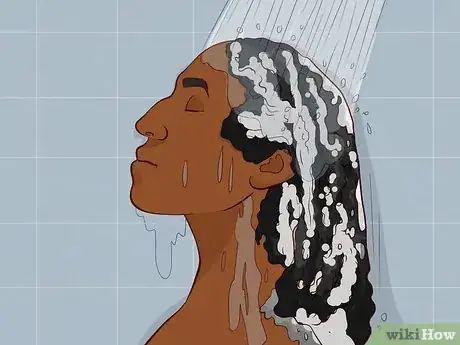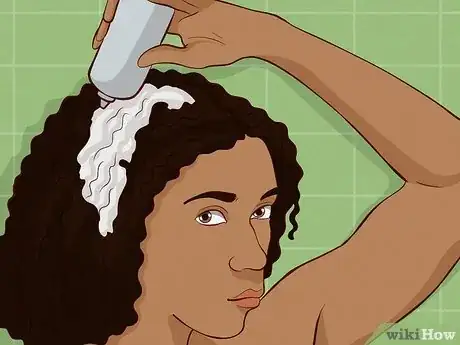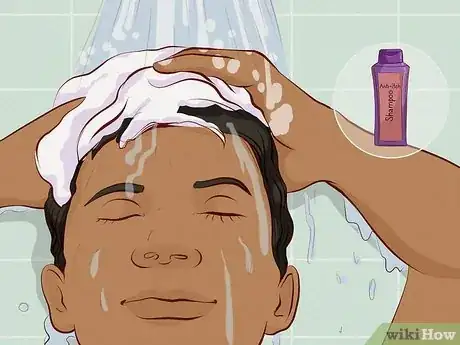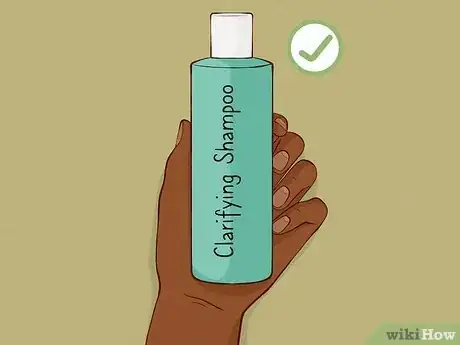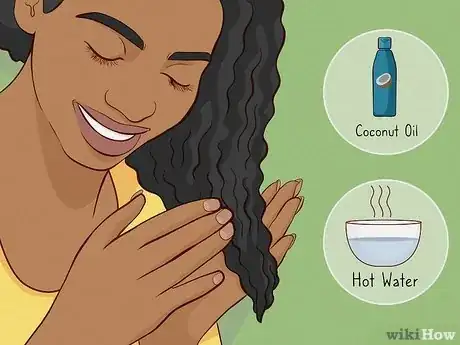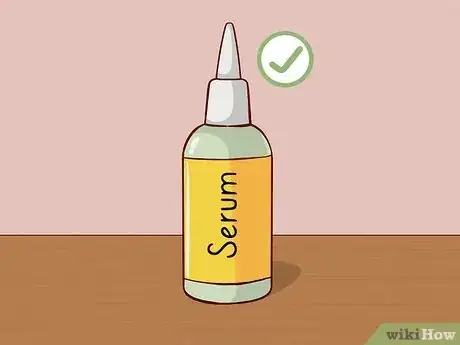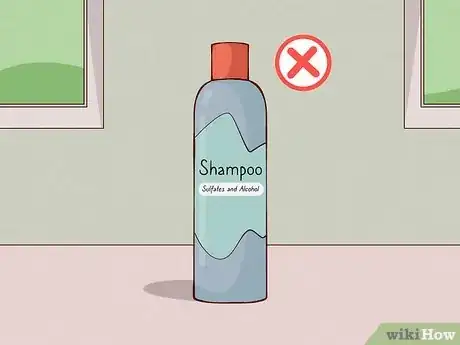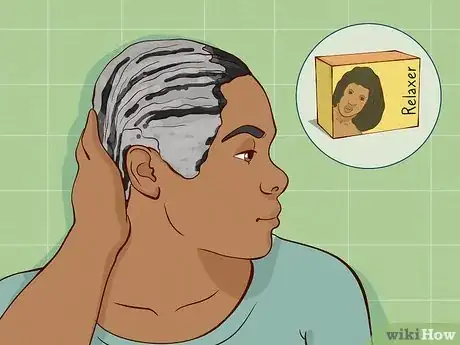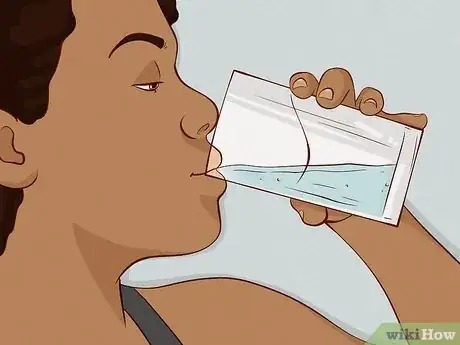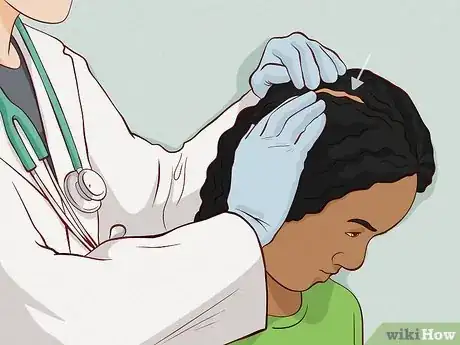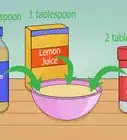This article was written by Courtney Foster and by wikiHow staff writer, Hannah Madden. Courtney Foster is a Licensed Cosmetologist, Certified Hair Loss Practitioner, and Cosmetology Educator based out of New York City. Courtney runs Courtney Foster Beauty, LLC and her work has been featured on The Wendy Williams Show, Good Morning America, The Today Show, The Late Show with David Letterman, and in East/West Magazine. She received her Cosmetology License from the State of New York after training at the Empire Beauty School - Manhattan.
This article has been viewed 18,105 times.
Is your scalp feeling dry, itchy, and irritated? African Americans tend to produce less sebum, or oil, which can make the scalp naturally dry.[1]
X
Trustworthy Source
PubMed Central
Journal archive from the U.S. National Institutes of Health
Go to source
Fortunately, by using moisturizing products and taking good care of your hair, you can hydrate your scalp and avoid flaky skin. Keep reading to learn how to treat dry scalp and keep your skin and your hair healthy.
This article is based on an interview with our licensed cosmetologist, certified hair loss practitioner, and cosmetology educator, Courtney Foster. Check out the full interview here.
Steps
Wash your hair once a week at most.
-
Shampoo strips away your natural oils, so limit your wash days. African American hair is naturally on the dry side, meaning it doesn’t need to be washed every day. Experts recommend washing your hair once a week at most, but you can extend that out to every 2 weeks if it works for your hair routine.[2] X Trustworthy Source American Academy of Dermatology Professional organization made of over 20,000 certified dermatologists Go to source
Put oil on your scalp before shampooing.
-
Add oil before you shampoo for a quick hydrating boost. Since shampoo is so drying, using a hair and scalp oil will help moisturize and hydrate your skin beforehand. Go for argan oil, rosemary oil, or black seed oil. Place a couple of drops in your hands, rub the oil onto your scalp, then run your fingers through your hair to target split ends.
- If you’re using rosemary oil, be sure to mix it with a carrier oil like olive oil or castor oil.[3] X Trustworthy Source Cleveland Clinic Educational website from one of the world's leading hospitals Go to source Rosemary oil is intense on its own, and using it directly on your scalp can cause allergic reactions or irritation. Mix 2 to 3 drops of rosemary oil with 1 US tbsp (15 mL) of your carrier oil.
Use an anti-itch shampoo to moisturize your scalp.
-
Anti-itch shampoo helps soothe irritated, dry skin. If you find that your scalp feels dry or flaky directly after shampooing, pick one that’s meant to hydrate and alleviate irritation. Look for ingredients like oatmeal and honey for a natural way to relieve dry scalp and itchiness.
- Keep in mind that dry scalp and dandruff are different things. Dandruff is caused by too much oil or a fungal infection on your scalp. If you have dandruff, you can treat it with a dandruff shampoo. If it’s just a dry scalp, use anti-itch shampoo.
- Dandruff flakes are large and have an oily appearance. Dry skin flakes are small and look dried out.
Try a clarifying shampoo to remove product buildup.
-
Hair products can dry out your scalp and cause irritation. If you use products in your hair like gel, hairspray, or leave-in conditioner, they could be contributing to your scalp irritation. Try using a clarifying shampoo to really cleanse your hair and scalp at least once a week.
- Clarifying shampoos can be drying, so follow up with a moisturizing conditioner to protect your hair.
Try a hot oil treatment twice a month.
-
Doing a hot oil treatment moisturizes your hair and scalp.[4] X Trustworthy Source American Academy of Dermatology Professional organization made of over 20,000 certified dermatologists Go to source You can choose from coconut oil, avocado oil, jojoba oil, or castor oil. Pour about 3 tsp (15 mL) of your oil into a plastic squirt bottle, then set it in about 2 inches (5.1 cm) of hot water. Apply the hot oil to the ends of your hair, working the excess oil into your roots and onto your scalp. After 1 hour, rinse and shampoo your hair to remove the oil.[5] X Research source
- Feel free to mix oils as well. Each oil offers its own benefits, and you can get all of those by adding oils together.
- To work the oil into your hair strands even more, sit under a heated dryer.
Hydrate your scalp with a serum.
-
Serums help alleviate itchiness and irritation. Whenever your scalp feels itchy, apply 1 to 2 drops of the serum to your hands, then rub it into your scalp. You can apply any extra serum to your hair to help moisturize and prevent split ends.
- Look for hair serums with argan oil, jojoba oil, or sunflower oil for the most hydration.
Avoid products with sulfates and alcohol.
-
Sulfates and alcohol dry out your hair and your scalp. As you look for products to use, stay away from silicones, sulfates, and alcohol. Look for hydrating ingredients, like oatmeal, honey, and oil to keep your hair (and your scalp) hydrated.
- Even products like gel or hairspray may have drying ingredients that can damage your hair.
Limit the use of relaxers.
-
Relaxers can dry out and irritate your scalp. If you relax your hair, always head to a professional to have it done the right way. Try to limit touch-ups to every 2 to 3 months to keep your hair and your scalp healthy.[6] X Trustworthy Source American Academy of Dermatology Professional organization made of over 20,000 certified dermatologists Go to source
- If you use relaxers, moisturizing your hair is extra important. Use a hydrating shampoo and a deep conditioner to repair and replenish your hair.
Drink water whenever you’re thirsty.
-
Hydrate your body from the inside out by drinking water. While it may seem obvious, many of us forget that drinking water actually helps skin retain moisture. If you aren’t already, make it a habit to keep a water bottle nearby, and to drink water whenever you’re thirsty.
- Getting electrolytes is also super important for hydration. Try to eat around 2,300 mg of sodium every day to stay hydrated.[7] X Trustworthy Source Centers for Disease Control and Prevention Main public health institute for the US, run by the Dept. of Health and Human Services Go to source
See a professional if DIY methods don’t work.
-
A licensed dermatologist can treat your dry scalp for you. If you’ve tried a few home remedies but you aren’t seeing much of a change, make an appointment with a doctor. They can listen to your symptoms and what you’ve tried already to give you their expert opinion and treatment options.
- Your dermatologist will try to determine the cause of your dry scalp and then treat it. They may prescribe a topical ointment or a prescription shampoo to use.
You Might Also Like
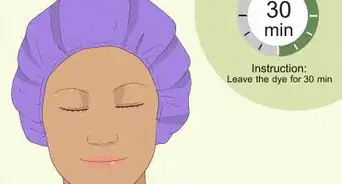


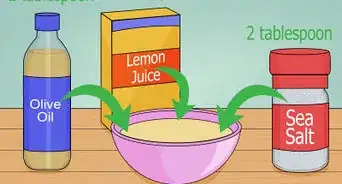

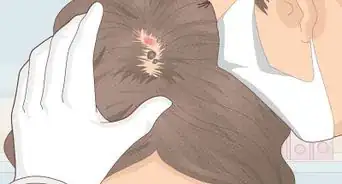 Bumps on the Scalp: What are Causes and Treatments?
Bumps on the Scalp: What are Causes and Treatments?




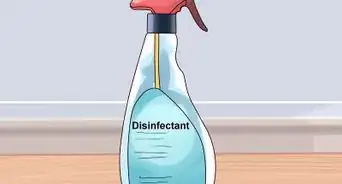

-Step-14-Version-7.webp)

References
- ↑ https://www.ncbi.nlm.nih.gov/pmc/articles/PMC4387693/
- ↑ https://www.aad.org/public/everyday-care/hair-scalp-care/hair/care-african-american
- ↑ https://health.clevelandclinic.org/essential-oils-101-do-they-work-how-do-you-use-them/
- ↑ https://www.aad.org/public/everyday-care/hair-scalp-care/hair/care-african-american
- ↑ https://www.youtube.com/watch?v=qy1ALPWdIWM&t=124s
- ↑ https://www.aad.org/public/everyday-care/hair-scalp-care/hair/care-african-american
- ↑ https://www.cdc.gov/salt/index.htm
About This Article

